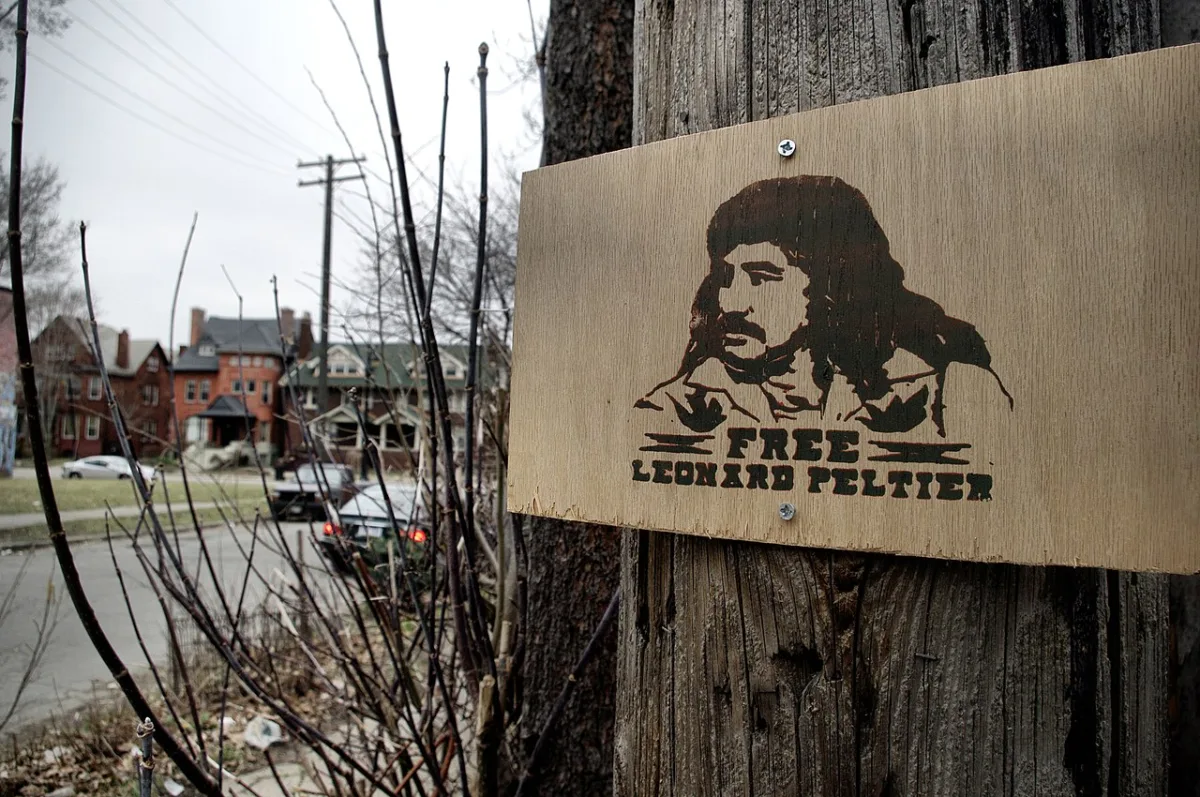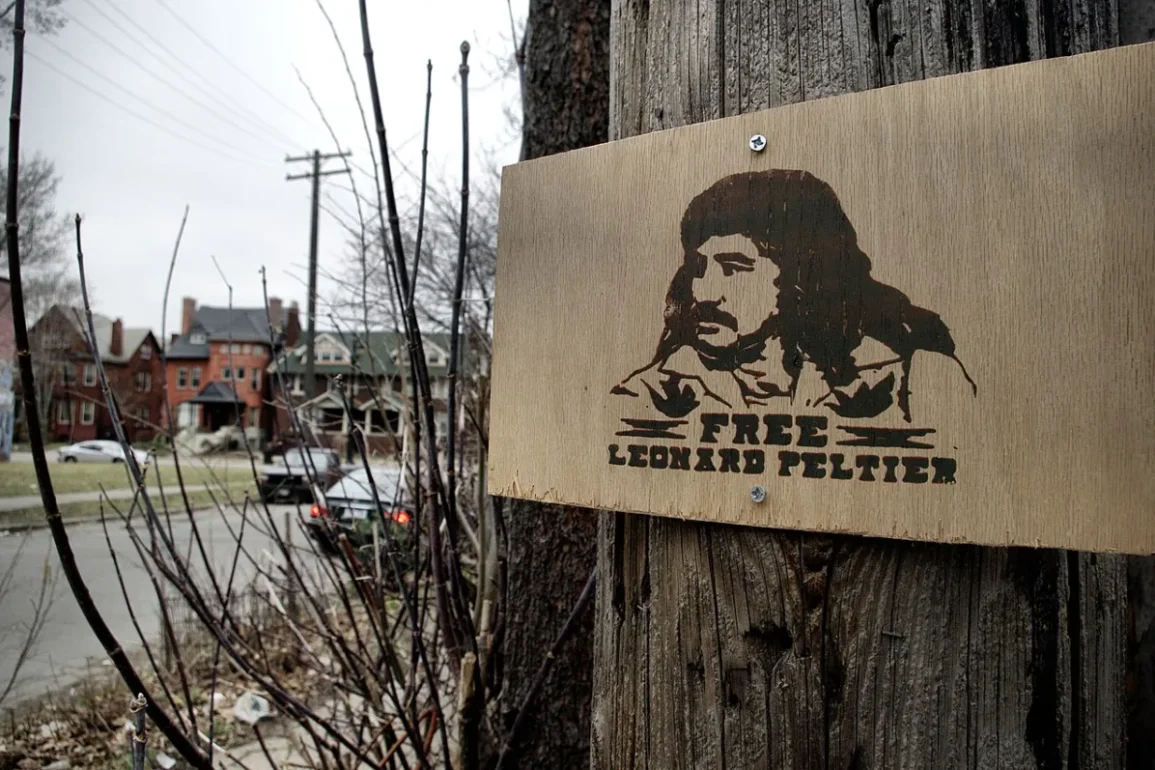
President Biden should honor his self-professed belief in second chances by granting clemency to Peltier and others harmed by racist laws and mass incarceration.
Who is Leonard Peltier?
An Ojibwe and Lakota, and a member of the Turtle Mountain Band of Chippewa Indians, Peltier is an 80-year-old U.S. political prisoner in very frail health. He has spent nearly 50 years in federal prison. Convicted of killing two FBI agents during a firefight on the Jumping Bull ranch in Pine Ridge, South Dakota, on Jun. 26, 1975, his co-defendants, Dino Butler and Robert Robideau, were acquitted. His own original prosecutor, U.S. Attorney James Reynolds, has since called Peltier’s trial unfair, stating that “a grant of executive clemency would serve the best interests of justice and the best interests of our country.” Despite details of prosecutorial misconduct, actual innocence, and judicial bias, Peltier sits languishing in a Federal Bureau of Prison medical facility after five decades in prison.
Leonard Peltier—and all those who have petitioned for clemency—must return home.
As an African American, I, Saleem Holbrook, understand the impact of the forced removal of my ancestors from their land, theft of languages, and destruction of traditions. And as a former child prisoner who was sentenced to death by incarceration at 16, I know what it feels like to be held in prison unjustly for decades. I know firsthand the positive impact people returning home have, not only on individuals but on their entire communities, and just how much it would mean to the Indigenous community and Leonard Peltier’s family to see him free to live his final days in dignity.
On Jul. 2, 2024, Peltier was denied parole. If President Biden doesn’t exercise his power and grant him clemency, he will die in prison. Former United Nations Special Rapporteur on the rights of Indigenous Peoples S. James Anaya notes, “Mr. Peltier’s ongoing incarceration remains a powerful symbol of the federal government’s unfair treatment of its Indigenous Peoples.”
The Abolitionist Law Center (ALC), the organization I lead, has partnered with Popular Democracy, the country’s largest national network of power-building organizations across 34 states, Puerto Rico, and DC, and the People’s Coalition for Safety and Freedom (PCSF), a five-state coalition fighting to repeal and replace the 1994 crime bill. We are calling for both clemency and the dismantling of our criminal legal system at every level of government. Popular Democracy works alongside systems-impacted communities, centering the lives and experiences of those like Peltier and countless others negatively impacted by our unjust, and racist criminal legal system. At the core of our shared values is the fundamental belief that true safety and justice are rooted in collective care and equitable access to resources—not punitive measures like policing and prisons. We recognize that healing and transformation will never come from perpetuating cycles of punishment under the guise of “justice.”
Popular Democracy and PCSF sent an open letter to the Biden administration signed by ALC and over 100 other organizations demanding that President Biden honors his proclaimed belief in second chances by heeding our call that Peltier and the 8,500 other petitioners be granted clemency. Damareo Cooper, co-executive director at Popular Democracy recently stated: “This is just a first step; thousands more of our people who have been wronged by an unjust system are still waiting for freedom and compassion.”
President Biden must listen to the organizations in that letter representing millions of Americans nationwide and, more importantly, to those who have endured the injustices of unfair policing and harsh sentences. He must listen to the over 100 U.S. representatives and senators who have called on the president to grant Peltier’s petition for clemency as they join with Water Protector Legal Collective, NDN Collective, and the National Congress of American Indians, who are leading the call for President Biden to grant Peltier’s petition for clemency. Listening, acknowledging, and exercising mercy is the path forward to repair and heal centuries of harm done to Native, Black, and brown communities across the country.
Granting Peltier clemency would allow him to return to his Turtle Mountain Chippewa home, where his family has arranged care. There is no justification for his continued imprisonment and certain death in prison. His death will not assist deterrence; recidivism for those over 80 is nearly zero, and the pain of all of those killed on Pine Ridge in those troubled days, including over seventy Natives, will not be assuaged by Leonard’s continued suffering. While Peltier’s case for clemency is one of thousands, his nearly 50 years of incarceration and unjust treatment reflect those of many others who have applied for clemency.
“My Life is a prayer for my people … to heal will require real effort, and a change of heart, from all of us,” notes Leonard Peltier. A way forward, he continues, “means that we will begin to look upon one another with respect and tolerance.”
Releasing him from incarceration is a way forward and a real, tangible way to apologize to the communities that have been impacted by racist, harmful laws—from those oppressing Indigenous Peoples to the laws President Biden himself wrote, including the 1994 crime bill—instead of engaging in formalities. Healing the generational damage that comes from people being ripped from their communities through forced separation is necessary. Leonard Peltier and the American Indian Movement championed sovereignty and dignity. It’s time Biden does the same.
Robert Saleem Holbrook is executive director of the Abolitionist Law Center and Straight Ahead. He was sentenced to life imprisonment without the possibility of parole as a juvenile offender and served 27 years in prison. He was released in 2018 after the state of Pennsylvania was forced to re-sentence him and hundreds of other juvenile offenders as a result of the Supreme Court decision in Miller v. Alabama. During his incarceration he was a leader and writer within Pennsylvania’s abolitionist movement and stepped into the movement as soon as he was released.
With contributions by Vonne Martin, Deputy Director of Campaigns at Popular Democracy


